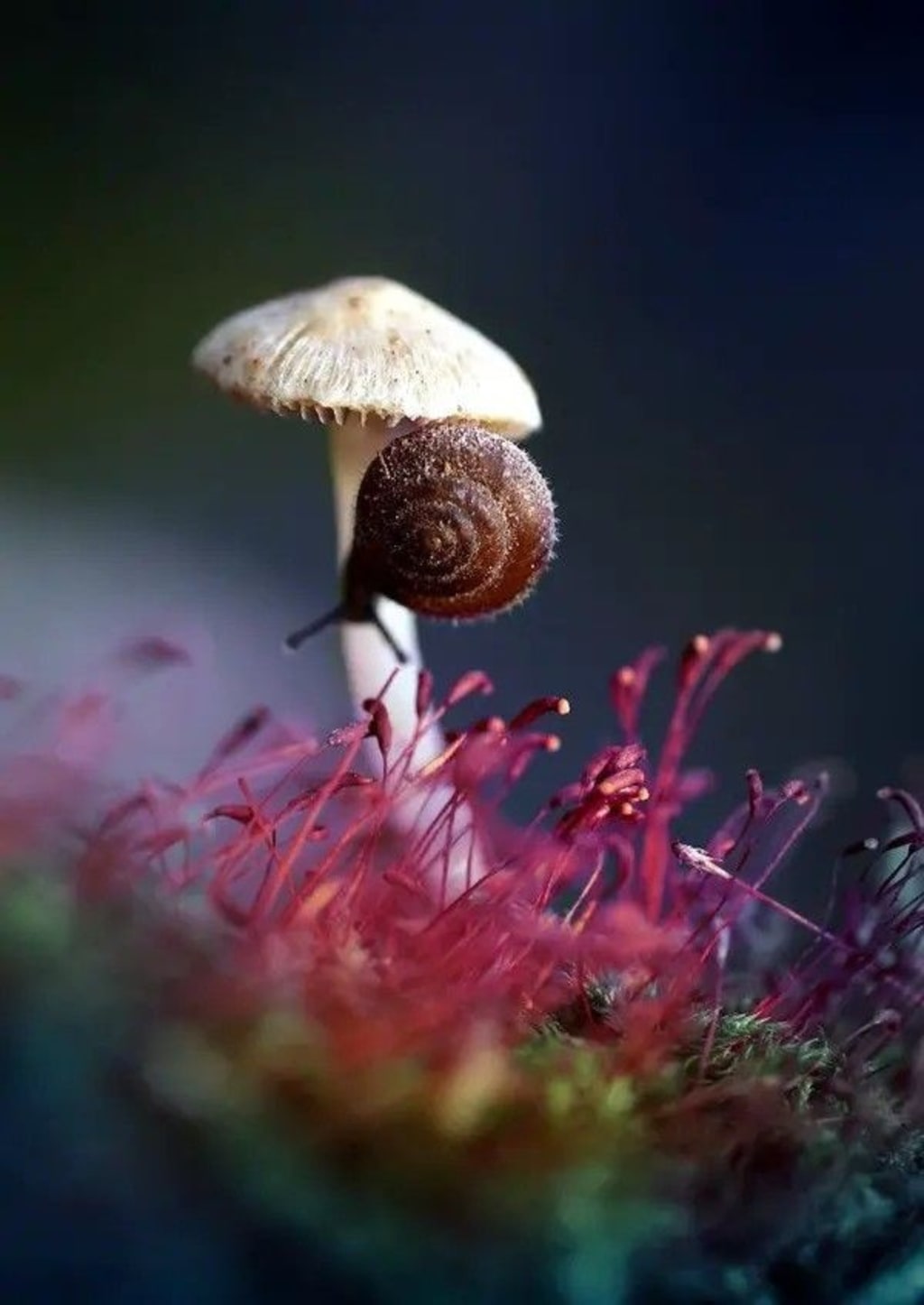MUSHROOM
Mushrooms: Nature's Mysterious Organisms

Mushrooms, often seen as the quintessential representatives of the fungal kingdom, are fascinating organisms that have intrigued humans for centuries. Their unique biology, diverse forms, culinary value, and medicinal properties make them a subject of immense interest in various fields.
Biological Overview
Mushrooms belong to the fungi kingdom, a group of eukaryotic organisms that also includes yeasts and molds. Unlike plants, fungi do not photosynthesize. Instead, they obtain nutrients through the decomposition of organic matter. Mushrooms are the fruiting bodies of fungi, which means they are the reproductive structures designed to produce and disperse spores.
The main body of a fungus is a network of thread-like structures called mycelium, which typically exists underground or within decaying organic material. When environmental conditions are favorable - often involving a combination of temperature, humidity, and the availability of nutrients - the mycelium produces mushrooms. These mushrooms then release spores, which are analogous to seeds in plants, to propagate the fungus.
Types of Mushrooms
Mushrooms come in a vast array of shapes, sizes, and colors. They are broadly classified into several types based on their characteristics and uses:
Edible Mushrooms: These are safe for consumption and are used extensively in cooking. Common examples include:
Agaricus bisporus: Known as the common button mushroom, it is widely cultivated and consumed worldwide.
Pleurotus ostreatus: Also known as oyster mushrooms, they have a delicate flavor and are popular in various cuisines.
Lentinula edodes: Known as shiitake mushrooms, these are highly valued in East Asian cuisine and traditional medicine.
Medicinal Mushrooms: Certain mushrooms are renowned for their health benefits and are used in traditional and modern medicine. Examples include:
Ganoderma lucidum: Known as reishi or lingzhi, it is used for its supposed immune-boosting and anti-cancer properties.
Cordyceps sinensis: This parasitic fungus is used in traditional Chinese medicine to enhance stamina and vitality.
Psychedelic Mushrooms: These contain psychoactive compounds such as psilocybin and are used for their mind-altering effects. The most well-known species in this category is Psilocybe cubensis.
Toxic Mushrooms: Some mushrooms are highly poisonous and can cause severe illness or death if ingested. Notable examples include:
Amanita phalloides: Known as the death cap, it is one of the most poisonous mushrooms in the world.
Amanita muscaria: Also known as fly agaric, it has hallucinogenic properties but is also toxic.
Nutritional and Culinary Value
Edible mushrooms are highly valued for their nutritional benefits and culinary versatility. They are low in calories and fat but rich in essential nutrients such as proteins, vitamins (especially B vitamins), and minerals (notably selenium, copper, and potassium). Mushrooms also contain dietary fiber and various bioactive compounds, including antioxidants.
In the kitchen, mushrooms are prized for their umami flavor, which enhances the taste of various dishes. They can be grilled, sautéed, roasted, or used in soups, stews, and sauces. Some varieties, like truffles, are considered gourmet delicacies and command high prices in the culinary world.
Medicinal Benefits
Mushrooms have been used in traditional medicine for centuries, particularly in Asian cultures. Modern scientific research is increasingly validating many of these traditional uses. Some of the potential health benefits of medicinal mushrooms include:
Immune System Support: Certain mushrooms, such as reishi and turkey tail (Trametes versicolor), are believed to boost the immune system by enhancing the activity of white blood cells.
Anti-Cancer Properties: Compounds found in mushrooms like shiitake, maitake (Grifola frondosa), and turkey tail have shown promise in inhibiting cancer cell growth and improving the efficacy of conventional cancer treatments.
Anti-Inflammatory Effects: Many mushrooms possess anti-inflammatory properties that may help in managing conditions like arthritis and other inflammatory diseases.
Antioxidant Activity: Mushrooms contain antioxidants that can protect cells from damage caused by free radicals, potentially reducing the risk of chronic diseases.
Ecological Significance
Mushrooms play a crucial role in ecosystems as decomposers. By breaking down organic matter, they recycle nutrients back into the soil, fostering plant growth and maintaining ecological balance. Some fungi form symbiotic relationships with plants through mycorrhizal associations, where the mycelium enhances water and nutrient uptake for the plant, while the plant provides the fungus with carbohydrates.
Cultural and Historical Significance
Mushrooms have a rich cultural and historical significance across various civilizations. In ancient Egypt, mushrooms were considered a delicacy fit for royalty. Indigenous peoples in North America, Asia, and Europe have used mushrooms for food, medicine, and spiritual practices.
The fascination with mushrooms extends into art and literature as well. They have been depicted in fairy tales, folklore, and artworks, often symbolizing mystery and the supernatural. The iconic image of the red and white Amanita muscaria, for example, is a staple in fairy tale illustrations and has inspired numerous myths and legends.
Challenges and Considerations
benefits, mushrooms also present certain challenges. Foragers must be knowledgeable to avoid toxic species, as misidentification can have dire consequences. Additionally, some people may have allergic reactions to mushrooms, and certain medicinal mushrooms may interact with medications or have side effects.
---
Cultivating mushrooms can also be complex, requiring specific conditions to promote growth. However, advancements in mycology and agricultural techniques have made mushroom farming more accessible and sustainable.
Conclusion
Mushrooms are a remarkable group of organisms that continue to captivate and benefit humanity. From their ecological roles and nutritional value to their medicinal properties and cultural significance, mushrooms are an integral part of our natural world and human history. As research progresses, we are likely to uncover even more about these fascinating fungi, further enhancing our appreciation and utilization of them in various aspects of life.
About the Creator
Enjoyed the story? Support the Creator.
Subscribe for free to receive all their stories in your feed.





Comments
There are no comments for this story
Be the first to respond and start the conversation.